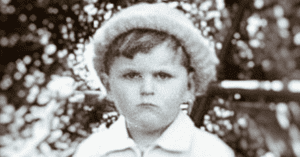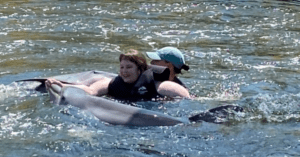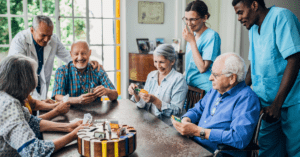Author: Kelsey Trace, NAF Research Associate
It was an exciting couple of days in Minnesota when prominent Ataxia clinical researchers and research coordinators met in Minneapolis in September for the annual Katie Campbell Clinical Trial Readiness Conference. This conference focuses on the work of the Clinical Research Consortium for the Study of Cerebellar Ataxias (CRC-SCA). It is supported by the family of Katie Campbell, who lost her battle with ataxia in 2016. Their generous donations make it possible for principal investigators and research coordinators from the CRC-SCA sites to gather once a year to share advancements, set-backs, and new discoveries that will move the entire field toward treatments for the Cerebellar Ataxias.
Additionally, as a new staff member of NAF, it was my first time meeting the attendees in-person. Let me tell you, they are quite the group of dedicated, congenial, and motivated individuals! It was so nice to be able to put faces to email addresses.
Key Points Discussed by Researchers
The focus of the meeting was to continue advancing the field to provide the tools that pharmaceutical companies need to develop treatments and therapies. With over 65 attendees, including clinician researchers and coordinators, NAF staff, and pharmaceutical companies; it was an empowering and collaborative two days. It was a great opportunity for me to learn more about the goals of the consortium. Highlights from this conference include:
- The introduction of new leadership for the consortium (Drs. Kuo, Shakkottai, and Rosenthal) for whom there was enthusiastic support. Leadership presented an updated working mission statement, discussed future focus of CRC-SCA, and utilization of increased stakeholder interest, in particular, industry partners.
- The concept that patients are the most important aspect of a research study in order to find treatments for Ataxia. Patients are research collaborators and researchers realize that their donation of biospecimens is an altruistic and precious act.
- The necessity of collecting biospecimens such as blood and cerebral spinal fluid (CSF) to be used as potential biomarkers. Biomarkers can be used to see how well the body responds to a treatment.
- An in-depth discussion regarding data access and its use to promote increased research in SCAs, ensure quality of research, and avoid duplication of research efforts.
Become a Research Collaborator
In summary, the CRC-SCA Natural History Study and biomarker development is growing and morphing during this exciting new era in Ataxia research as pharmaceuticals are advancing to therapy development for the Ataxias. CRC-SCA is anticipating adding specific clinical end-point assessments and biospecimen collection to increase the strength of this study and collaborate with stakeholders in a meaningful way that includes patients as research collaborators.
To learn more about participating in these studies, see this page of NAF’s website.















